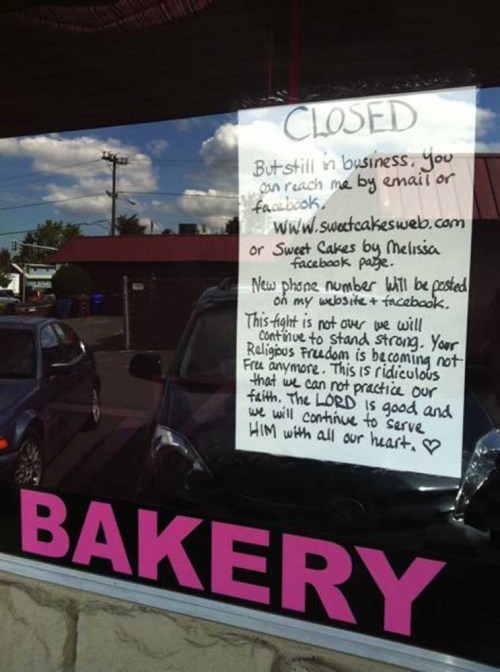Appeals court upholds ruling against Gresham baker, but overturns $135K award
Published 1:00 pm Thursday, January 27, 2022
SALEM — The Oregon Court of Appeals has added a wrinkle in its latest decision in the long-running case of a Gresham baker’s refusal to bake a wedding cake for a same-sex couple.
In an opinion released Wednesday, Jan, 26, the court upheld its original 2017 decision against the couple — Aaron and Melissa Klein, then doing business as Sweet Cakes by Melissa — based on a 2015 determination by the Bureau of Labor and Industries that they violated Oregon’s 2007 law barring discrimination based on sexual orientation. The couple argued that doing so would infringe on their religious rights.
But the court also overturned its previous approval of $60,000 in noneconomic damages to Laurel Bowman-Cryer and $75,000 to Rachel Bowman-Cryer, both awarded by an administrative law judge in the bureau. The court found that the awards were based partly on a conversation about beliefs between Aaron Klein and Cheryl McPherson, Rachel Bowman-Cryer’s mother, who the court found relayed it inaccurately to the couple.
The court sent that part of the case back to the bureau for a re-examination of the remedy for damages.
The latest decision was written by Erin Lagesen, now chief judge of the Court of Appeals. Others on the panel were Judge Bronson James and now-Senior Judge Joel DeVore, who retired on Dec. 31. The court considered the arguments on Jan. 9, 2020.
The court had to reconsider the case in the aftermath of two U.S. Supreme Court decisions in 2017 and 2021.
The case attracted national attention. The Kleins were represented by the First Liberty Institute, based in Texas, and the law firm of C. Boyden Gray, White House counsel for President George H.W. Bush and a diplomat for President George W. Bush. Friend-of-the-court briefs were filed by the Lambda Legal Defense and Education Fund and the ACLU Foundation of Oregon.
Appeals of most state agency decisions go to the Court of Appeals.
The business closed in 2016. The Kleins pursued the case on grounds of religious rights.
Although the Oregon Supreme Court declined to hear the Kleins’ appeal of the original decision in 2018, the Kleins appealed to the U.S. Supreme Court. At the end of 2017, the U.S. Supreme Court ruled narrowly in a similar case that the Colorado Commission on Civil Rights did not employ “religious neutrality” and reversed that state’s decision against the bakery owner. It sent the Oregon case back to the state appeals court.
“We conclude … BOLI’s handling of the damages portion of the case does not reflect the neutrality toward religion required by the free-exercise (of religion) clause,” Lagesen wrote for the appeals court. “We therefore set aside the damages portion of the order and remand for further proceedings related to remedy.”
On June 21, 2021, the U.S. Supreme Court decided that Philadelphia violated Catholic Social Services’ constitutional right to free exercise of religion when the city barred it from participating in a foster-care program, based on the organization’s refusal to certify same-sex couples. There were discretionary exemptions in the Philadelphia rule.
But the Oregon Court of Appeals said Oregon’s 2007 law is constitutional.
“Neither the state constitution nor the federal constitution precludes the enforcement of the statute against Aaron (Klein), even though the enforcement of the statute burdens Aaron’s practice of his faith,” Lagesen wrote.
“In so doing, we conclude that (the 2021 federal decision) does not displace our previous conclusion that it is a genuinely applicable and neutral law,” which does not provide for discretionary exemptions.










